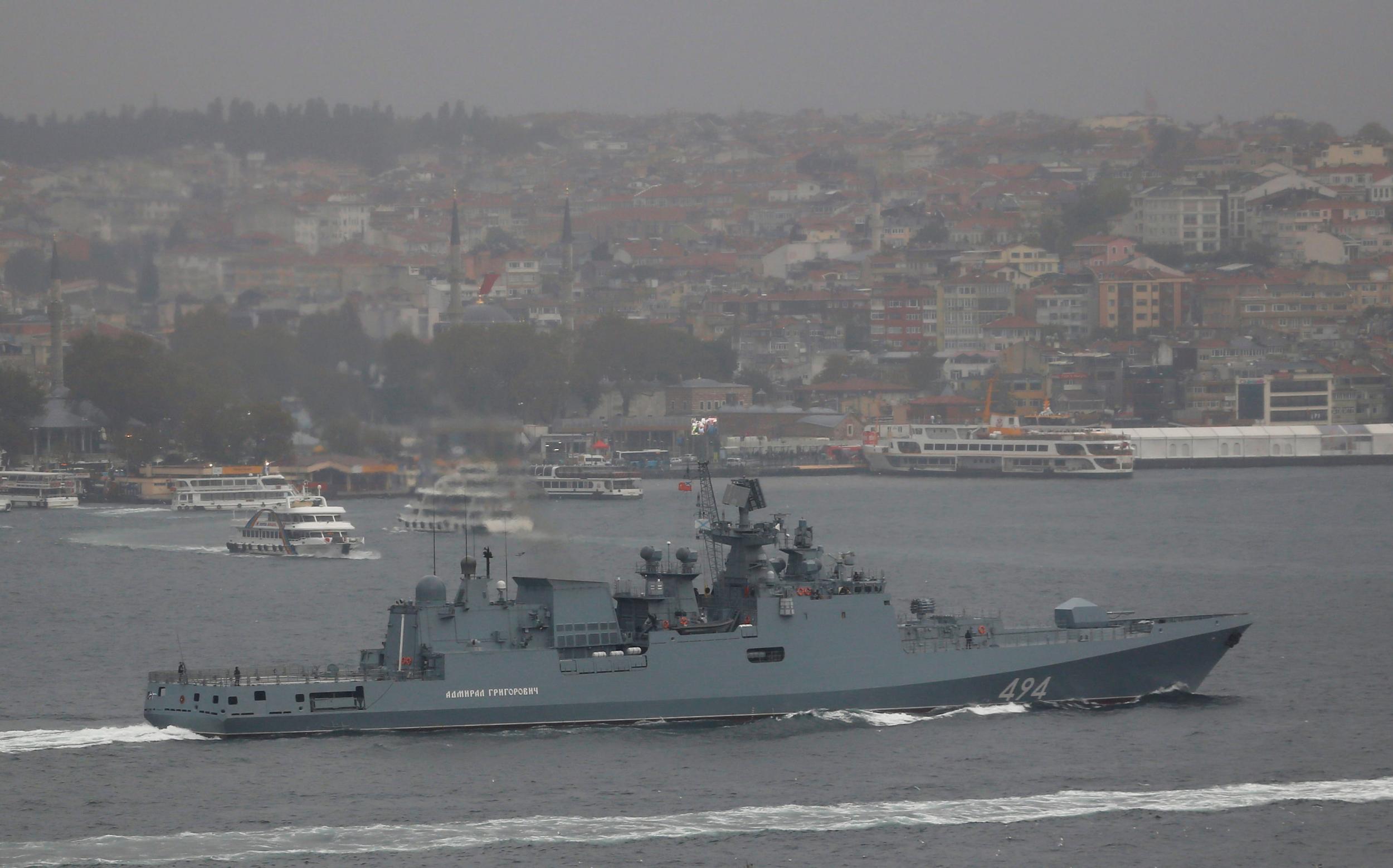Syria air strikes: Russia sends more warships to Assad-controlled port of Tartus
Two Steregushchiy-class corvettes, ocean tug and a fleet oiler leave Kaliningrad to join the missile-armed Admiral Grigorovich in Mediterranean as tensions between Russia and US grow

Your support helps us to tell the story
From reproductive rights to climate change to Big Tech, The Independent is on the ground when the story is developing. Whether it's investigating the financials of Elon Musk's pro-Trump PAC or producing our latest documentary, 'The A Word', which shines a light on the American women fighting for reproductive rights, we know how important it is to parse out the facts from the messaging.
At such a critical moment in US history, we need reporters on the ground. Your donation allows us to keep sending journalists to speak to both sides of the story.
The Independent is trusted by Americans across the entire political spectrum. And unlike many other quality news outlets, we choose not to lock Americans out of our reporting and analysis with paywalls. We believe quality journalism should be available to everyone, paid for by those who can afford it.
Your support makes all the difference.In the wake of the US air strike on a Syrian airbase last week Moscow is sending more ships to Syrian regime controlled waters, a US defence official has said.
Two Steregushchiy-class corvettes, an ocean tug and a fleet oiler left Kaliningrad over the weekend, the unnamed official confirmed to USNI News on Monday.
The Baltic Navy vessels are expected to arrive in the eastern Mediterranean in the next five days and will probably be based in Tartus, which is home to a Russian naval base.
The surface action group of ships joins the cruise-missile armed Admiral Grigorovich, which began its journey from the Black Sea on Friday.
“The [Grigorovich] will operate in the region in accordance to the changing military situation,” Russia state media reported, adding that it carries cruise missiles, a missile defence system, artillery, anti-aircraft guns, torpedoes, and can dock a helicopter.
The frigate was previously used in the bombardment of rebel-controlled Aleppo last year. The recapture of the city - in large part thanks to Russian firepower - has decisively turned the tide of the war in Russian ally Syrian President Bashar al-Assad’s favour.
Steregushchiy-class corvettes, some of Russia’s most modern ships, are also capable of firing long range cruise missiles and were used in the Aleppo campaign.
The new fleet joins the six other Russian warships and four support vessels currently stationed in the eastern Mediterranean.
The US maintains a four ships deployment in the same area, including the USS Porter and USS Ross, which were used to launch a barrage of 59 Tomahawk missiles at regime-operated Shayrat airbase near Homs on Friday.
The attack - which marked the first direct action taken by the US against the Syrian government in more than six years of the civil war - killed six soldiers and caused some damage to jets, runways and hangars, but has had little impact on the Assad air force’s capabilities overall.
Russia was among countries that also used the base, but advance US warning to Russian forces ahead of the strike meant that there were no Kremlin casualties.
The retaliatory strike was a “warning shot” from the US over the Syrian government’s alleged chemical weapons attack on the rebel-held village of Khan Sheikhoun last week, which killed at least 80 people. Autopsies carried out by the Turkish Health Ministry showed the victims had been exposed to both sarin and chlorine gas.
Damascus and Moscow have denied the regime attacked the village with chemical weapons, maintaining that the casualties were caused by gases released after an al-Qaeda-affiliated ammunitions depot was hit by conventional munitions in a legitimate government air raid.
The US attack on a Syrian government target has further complicated the already dazzlingly complex Syrian civil war.
President Donald Trump’s administration had up until last week prioritised defeating Isis as the US’ main focus in the conflict, rather than removing Mr Assad from power.
On Monday, UK Foreign Secretary Boris Johnson said that Russian parties could possibly be subject to economic sanctions over the country’s support for Mr Assad.
Prime Minister Theresa May and Mr Trump spoke on the phone ahead of the G7 meeting in Italy on Tuesday, agreeing there is now a “window of opportunity” to persuade Russia to ditch its support for the Syrian regime, but the proposals have been met with a lukewarm response from European allies.
Subscribe to Independent Premium to bookmark this article
Want to bookmark your favourite articles and stories to read or reference later? Start your Independent Premium subscription today.
Join our commenting forum
Join thought-provoking conversations, follow other Independent readers and see their replies
Comments